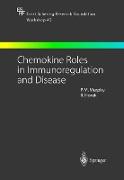- Start
- Chemokine Roles in Immunoregulation and Disease
Chemokine Roles in Immunoregulation and Disease
Angebote / Angebote:
In autumn 2002, the Ernst Schering Research Foundation Workshop sponsored the 45th in its series of conferences devoted to emerging areas in basic and applied biomedical research. These conferences bring together a critical mass of top scientists working in an impor tant area in an intimate setting that fosters the free exchange of knowledge and ideas. In this spirit, Workshop 45 assembled leaders in the field of chemokines - hemotactic cytokines that coordinate leukocyte trafficking - amid the scenic vineyards and wineries of Napa Valley, to discuss the latest concepts of how these molecules regulate the immune response and disease. Chemokines were se lected as a conference topic because they have revitalized the study of leukocyte trafficking and are widely considered to be potential new targets for drug development, in diseases ranging from acute in flammation and autoimmunity to HIV and cancer. Discovered in the 1980s, the chemokine superfamily currently has 43 human members, making it the largest subset of cytokines. Mem bers are defined by conserved sequences and a common three-di mensional fold, and can be divided into two major functional groups - homeostatic and inflammatory - depending on whether they are produced constitutively, and thereby control basal lymphocyte traf ficking, or whether they must be induced, for example by pathogens or injury, and thereby control deployment of effector leukocytes in emergencies.
Lieferbar in ca. 20-45 Arbeitstagen
